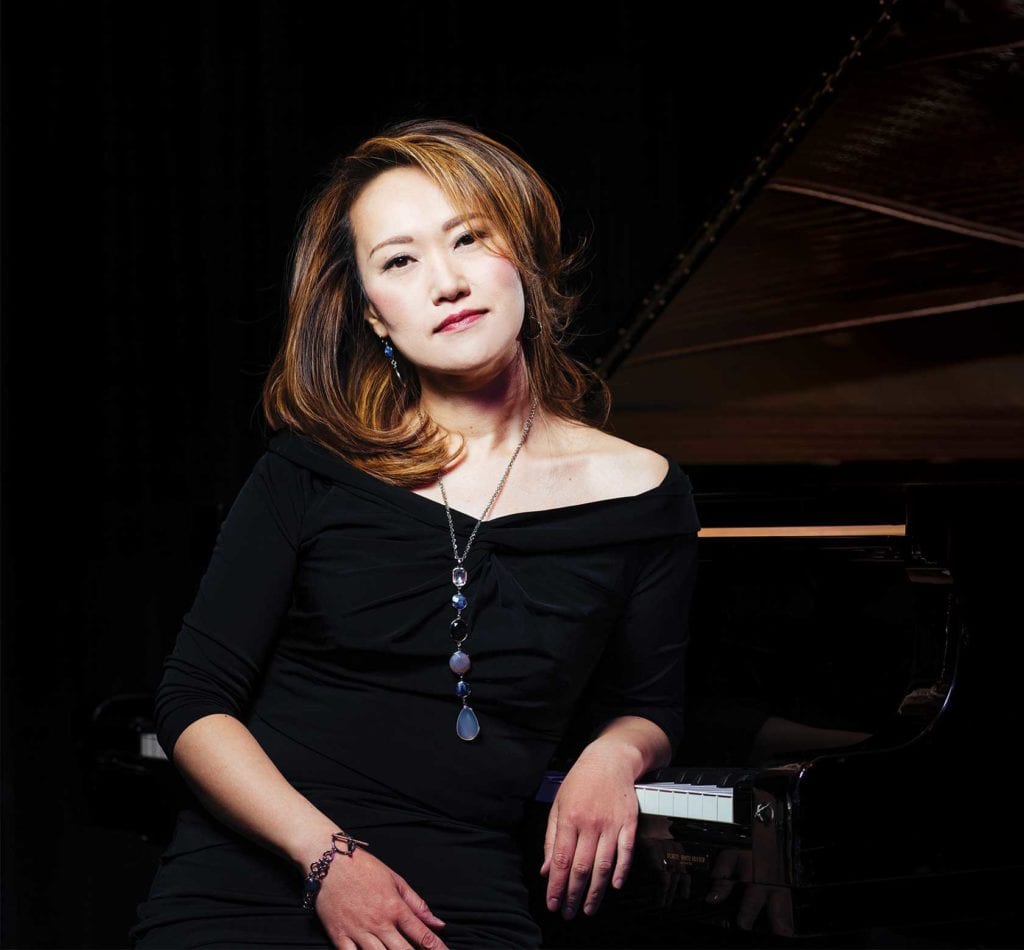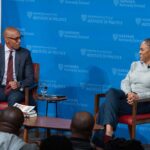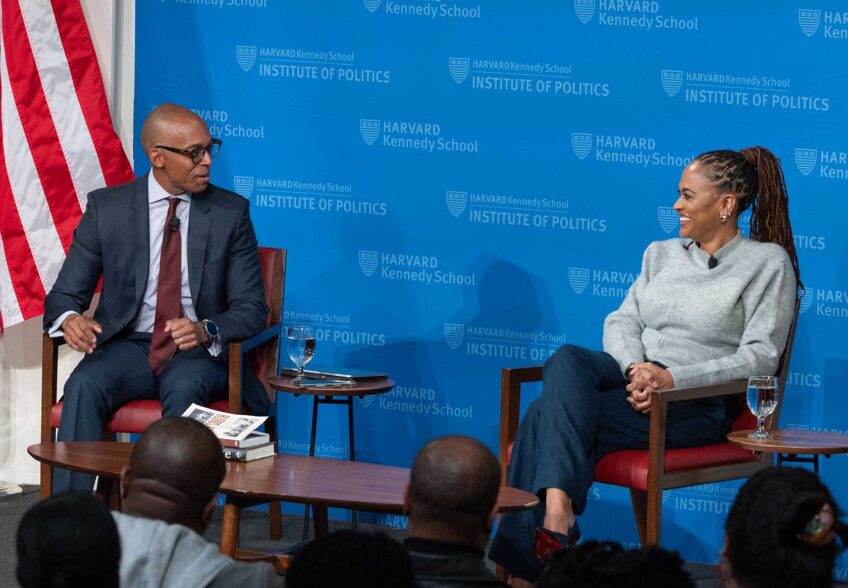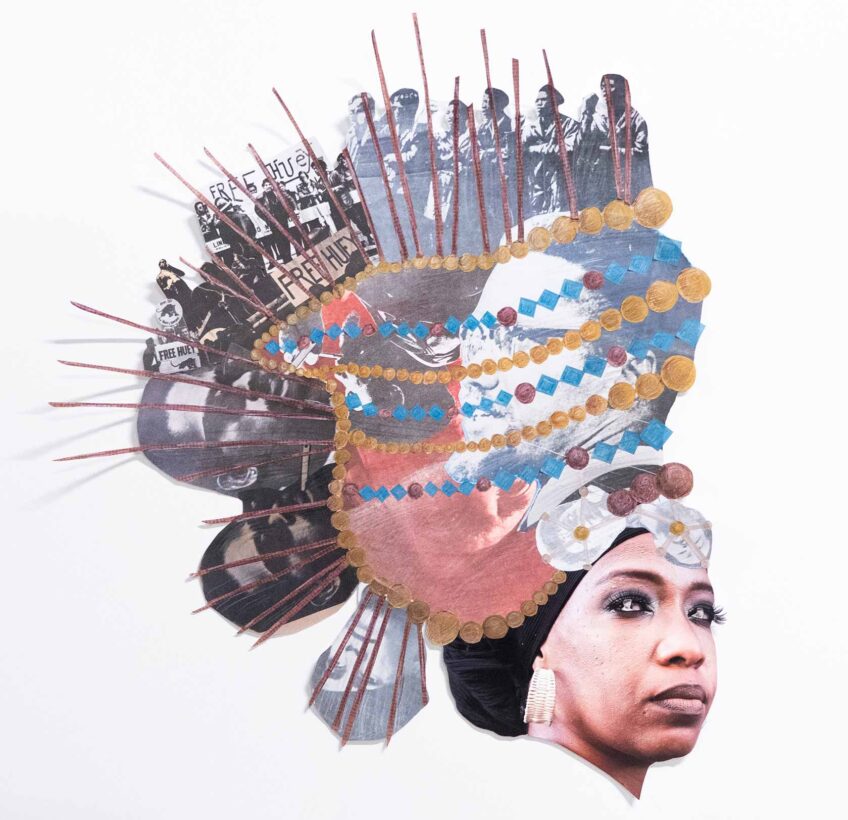Yoko Miwa: jazz pianist, composer, educator
Learning by listening

Boston is a good city for jazz, and jazz is good for Boston. Its schools, radio programs, presenters, clubs and festivals cultivate fine homegrown talent as well as musicians who come here from other cities around the world to live, play and teach.
Among the latter is jazz pianist, composer and Berklee College of Music piano professor Yoko Miwa. With her trio, Miwa performs regularly at The Mad Monkfish in Cambridge and Les Zygomates in Boston and plays sold-out concerts at such clubs as Scullers and the Regattabar. She and her trio also perform at iconic New York venues such as Birdland (Jan. 20), the Blue Note, and Dizzy’s at Lincoln Center.
The Yoko Miwa Trio comprises Miwa, bassist Brad Barrett and percussionist Scott Goulding, Miwa’s husband. Goulding also helps Monkfish owner Jamme Chantler plan music programming in the restaurant’s Jazz Baroness Room, where on Dec. 6, the Yoko Miwa Trio will perform with world-renowned jazz vocalist Sheila Jordan.
Local jazz stations have been featuring selections from Miwa’s latest album, “Keep Talkin,’”an infectious collection of her own compositions and interpretations of songs by Charles Mingus, Joni Mitchell, Thelonious Monk, Brazilian musician Marcelo Camelo as well as a sampling of the John Lennon and Paul McCartney songbook. Each gives a flavor of her distinct style as a pianist, which encompasses a delicate, melodic lyricism with a propulsive, swinging groove.
Born and raised in Kobe, Japan, Miwa came to Boston in 1997 after winning a full scholarship to study at Berklee. While studying classical music at the Koyo Conservatory of Music in Kobe, Miwa also took private lessons with keyboardist and educator Minoru Ozone, whose son is jazz pianist Makoto Ozone, and performed pop music in his club. The elder Ozone nurtured Miwa’s ability to play by ear and absorb the language of jazz by listening with care and examining a solo measure by measure.
On a recent afternoon, in a sunlit studio on the fourth floor of a Berklee building on Boylston Street, Miwa guided Leo, a second-year piano student, as he explored a transcribed Charlie Parker solo in the ballad “Donna Lee.” Posters of Thelonious Monk and Martin Luther King were the sole décor in the room, which was equipped with two pianos. On one, Miwa played the bass part, the rhythm and chords, as on the other, Leo tackled a single measure. Miwa encouraged him to repeat the phrase, shifting its tempo and tone. “There’s a lot to work with,” she says, and assigns Leo to explore two measures as his homework.
Learning by listening comes naturally to Miwa, whose gifts include perfect pitch. “When I was a child, I’d hear a song on the radio or TV, and I could play it on our piano.”
When she entered the conservatory, says Miwa, “I studied so hard — five hours a day. But I did not see myself becoming a classical concert pianist. Instead, I was playing pop tunes and ballads. My mother is a music lover, and at home, we’d listen to music all the time, including a lot of American jazz that came into Japan after World War II — Nat King Cole, Frank Sinatra, the Glen Miller big band. One day, it just clicked. I was listening to ‘Smoke Gets in Your Eyes,’ and thought, ‘This is what I want to play.’ I was 19.”
As she studied with Minoru Ozone, she would rapidly memorize ballads, replaying passages on her Walkman to master each part. Every two weeks, she would return with a new song in her repertoire.
Listening is a lifelong practice, says Miwa. “It’s my form of research. In the process, I increase my vocabulary. I absorb what I hear, and it comes out of me in a new way.”
Miwa encourages her students to do the same. By developing a rich vocabulary, Miwa says, they can focus on interacting with the musicians they are playing with and engage in “a real-life musical experience.”
Such interaction will be on display at the Mad Monkfish when vocalist Jordan performs with Miwa’s trio. Mentored by Charlie Parker, who introduced her as “the singer with the million-dollar ears,” Jordan, now age 91, adopted her inventive, scat-inflected vocal style decades ago. Stretching, repeating, and pulling phrases apart, Jordan injects fresh power into familiar lyrics, telling her own story. Recipient of the 2012 Jazz Masters Award from the National Endowment for the Arts, Jordan, like Miwa, has strong roots in bebop and its rich improvisation.
In the lesson room, Miwa held up two sheets of music. One was a page of a classical music dense with notations; the other, the score of a Charlie Parker composition, “Donna Lee.” “Everything is written out on the classical piece,” said Miwa. “The other is just a map. We make it come alive.”

![Banner [Virtual] Art Gallery](https://baystatebanner.com/wp-content/uploads/2024/05/Breathe-Life-4-ToGetHe_WM-150x150.jpg)


![Banner [Virtual] Art Gallery](https://baystatebanner.com/wp-content/uploads/2024/05/Breathe-Life-4-ToGetHe_WM-848x751.jpg)

